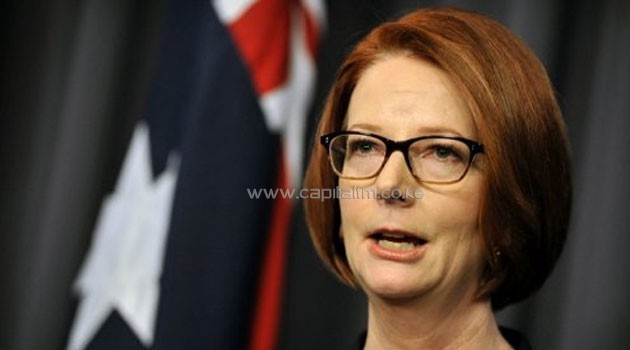SYDNEY, Sept 14 – Losing power was like being “hit by a fist”, Australia’s first female prime minister Julia Gillard said Saturday, recounting the pain of being dumped by her party.
Gillard made history in 2010 when she became the first woman to lead the country after ousting Kevin Rudd in a Labor party room coup, a move that shocked the nation, which had voted Rudd into power just three years before.
But in June Gillard received the same treatment herself, with her parliamentary Labor colleagues returning the leadership to Rudd after she failed to turn around dismal opinion poll ratings.
“Losing power is felt physically, emotionally, in waves of sensation, in moments of acute distress,” Gillard wrote in a piece published online in The Guardian on Saturday.
“I know now that there are the odd moments of relief as the stress ekes away and the hard weight that felt like it was sitting uncomfortably between your shoulder blades slips off.
“I know too that you can feel you are fine but then suddenly someone’s words of comfort, or finding a memento at the back of the cupboard as you pack up, or even cracking jokes about old times, can bring forth a pain that hits you like a fist, pain so strong you feel it in your guts, your nerve endings.”
Rudd ultimately lost the September 7 election to conservative leader Tony Abbott and has stepped down from the Labor leadership, which is now a contest between two of his former ministers, Anthony Albanese and Bill Shorten.
But Gillard, who said she watched the election night results on her own to “just let myself be swept up in it”, said more needed to be done to heal the Labor Party after three years of bitter infighting over the leadership.
She criticised the switch back to Rudd just weeks ahead of the poll — a move that led several high-profile ministers to quit — saying it sent Australians “a very cynical and shallow message” about the party’s sense of purpose.
“It was not done because caucus now believed Kevin Rudd had the greater talent for governing,” she wrote.
“It was only done — indeed expressly done — on the basis that Labor might do better at the election.
“Labor unambiguously sent a very clear message that it cared about nothing other than the prospects of survival of its members of parliament at the polls.”
Gillard, who opted not to stand in this month’s polls, also said Rudd — whose downfall in 2010 came about after he lost the support of his colleagues — failed to articulate a reason why he had been installed as leader.
“There was not one truly original new idea to substitute as the lifeblood of the campaign,” she said, adding that some of Rudd’s policy flourishes during his campaign — including appearing anti-foreign investment — needed to be ditched.










































